| | Hamas and Israel edge closer to a ceasefire deal, China increases export controls on rare earths, an͏ ͏ ͏ ͏ ͏ ͏ |
| |  | Flagship |  |
| |
|
The World Today | 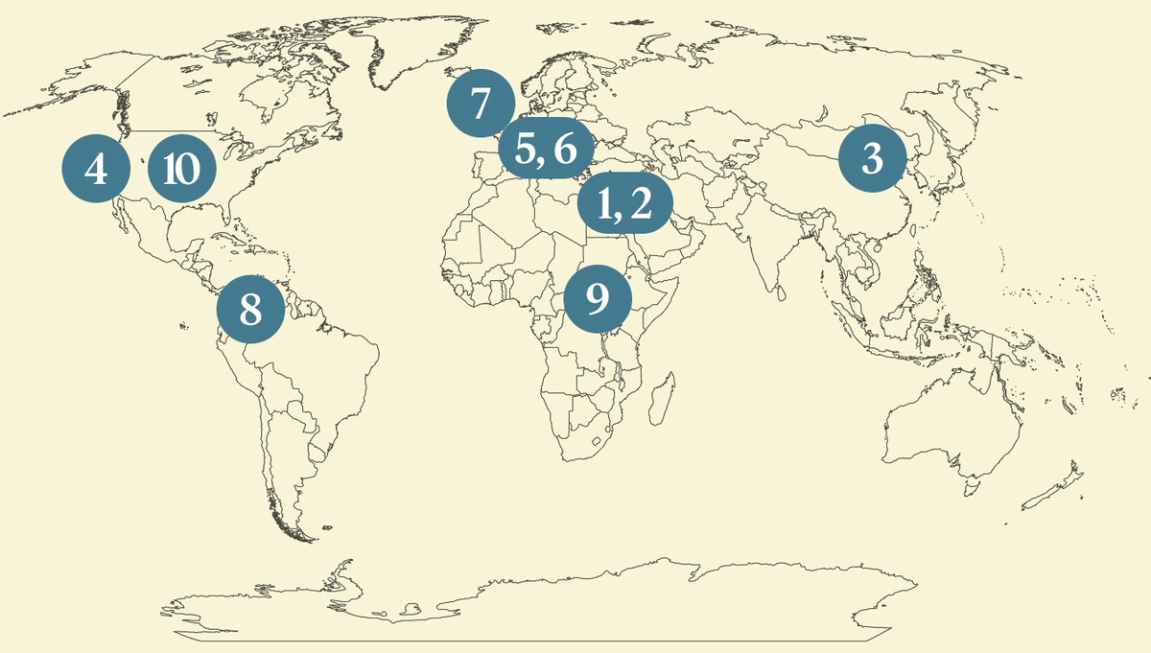 - Israel, Hamas agree deal…
- …but obstacles remain
- China rare earths controls
- AI bubble warnings grow
- Macron to name new PM
- Germany’s industrial woes
- The death of Tory England?
- Colombia accuses US
- Call for Africa tax boost
- The problem with protein
 A right whale resurgence, and an exhibition of a once-forgotten female Flemish great. |
|
Israel and Hamas reach truce |
 Ammar Awad/Reuters Ammar Awad/ReutersIsrael and Hamas agreed to the first phase of a ceasefire deal, driving cautious optimism for an end to their brutal two-year conflict. The agreement calls for the release of all Israelis kidnapped during Hamas’ Oct. 7, 2023 attack, the freeing of Palestinian prisoners held by Israel, and the withdrawal of Israeli troops to an agreed-upon line. US President Donald Trump said he would visit the region to sign the deal, which The New York Times called “the biggest diplomatic accomplishment of his second term.” Residents of Gaza — where a humanitarian disaster has unfolded, with 67,000 killed and famine taking root — and the families of Israeli hostages welcomed the deal. “Finally,” a Palestinian envoy to the UN said. |
|
Major hurdles to Mideast peace |
 Ammar Awad/Reuters Ammar Awad/ReutersHuge obstacles could hinder any lasting peace between Israel and the Palestinians, despite the announcement of the first phase of a ceasefire deal, analysts said. Israel’s hard-right, nationalist finance minister said he would vote against the agreement, and though the deal is expected to pass, his remarks underline domestic opposition. Later phases of the agreement also include numerous requirements that are unlikely to be fulfilled, such as the disarmament of Hamas, meaning that while the narrower hostage deal is laudable, the prospects for the wider truce “are very, very limited,” a Biden-era security official told the Financial Times. Much work also remains on rebuilding Gaza: France is hosting Arab and European talks on the issue today. |
|
China limits rare earth exports |
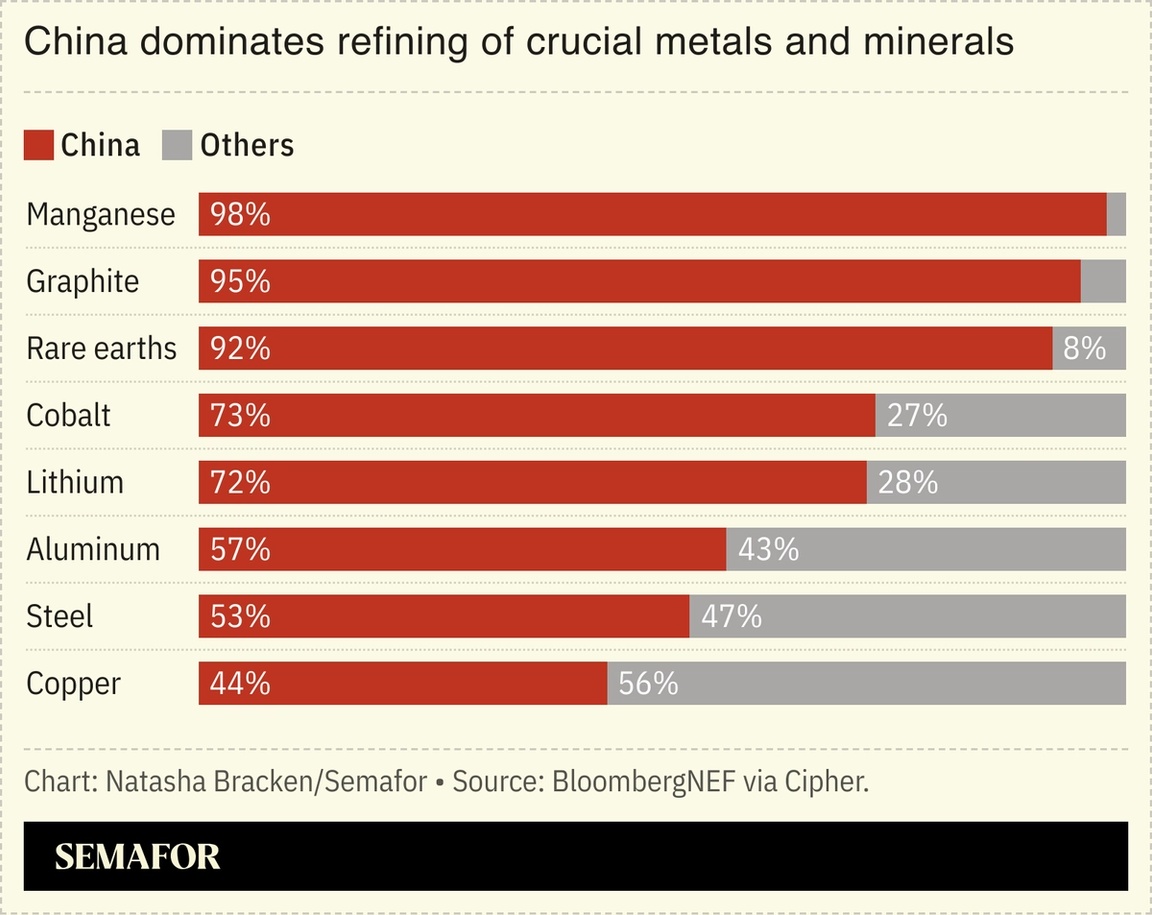 China tightened export controls on rare earths, giving Beijing a major bargaining chip ahead of a potential meeting between Chinese leader Xi Jinping and US President Donald Trump this month. The move threatens to reverse a thaw in relations between Beijing and Washington, which have traded punitive tariffs in recent months. China produces and refines the vast majority of the world’s supply of rare earths, key in several industries, including defense and semiconductor manufacturing. Aware of its dependency on China, the US recently unveiled a $5 billion fund to secure access to rare earths elsewhere, though experts fear the move comes too late to close the gap, the South China Morning Post reported. |
|
Bank of England warns of AI bubble |
 Mina Kim/File Photo/Reuters Mina Kim/File Photo/ReutersThe Bank of England warned that an AI-fueled bubble could burst and that a “sharp market correction” could be approaching. The UK central bank said that valuations of US stocks resembled the peak of the 2000s dot-com craze, and that 30% of the S&P 500’s total value came from just five AI-focused companies, the most concentrated the index has been in 50 years. The BoE also warned that threats to the US Federal Reserve’s independence could cause a run on the dollar. There are other warning signs: Investors are increasingly piling into alternative assets such as gold and crypto, The Wall Street Journal reported, hedging against a possible collapse.
|
|
 Benoit Tessier/File Photo/Reuters Benoit Tessier/File Photo/ReutersFrench President Emmanuel Macron will name a new prime minister this week, likely ruling out snap parliamentary elections that threatened to drive the country deeper into political chaos. France has been mired in protracted budgetary deadlock, resulting in multiple governments being unseated. The outgoing premier — Macron’s seventh — told French television that a path out of the morass was “still possible,” but would be “difficult.” Though a definitive resolution still looks distant, the euro gained on the news. The longer-term ramifications of the entrenched crisis could be significant, though: “Deep disagreement about a societal project [creates] revolutionary situations,” a leading French historian told Le Monde. “Revolutions happen because the elites are not up to the task.” |
|
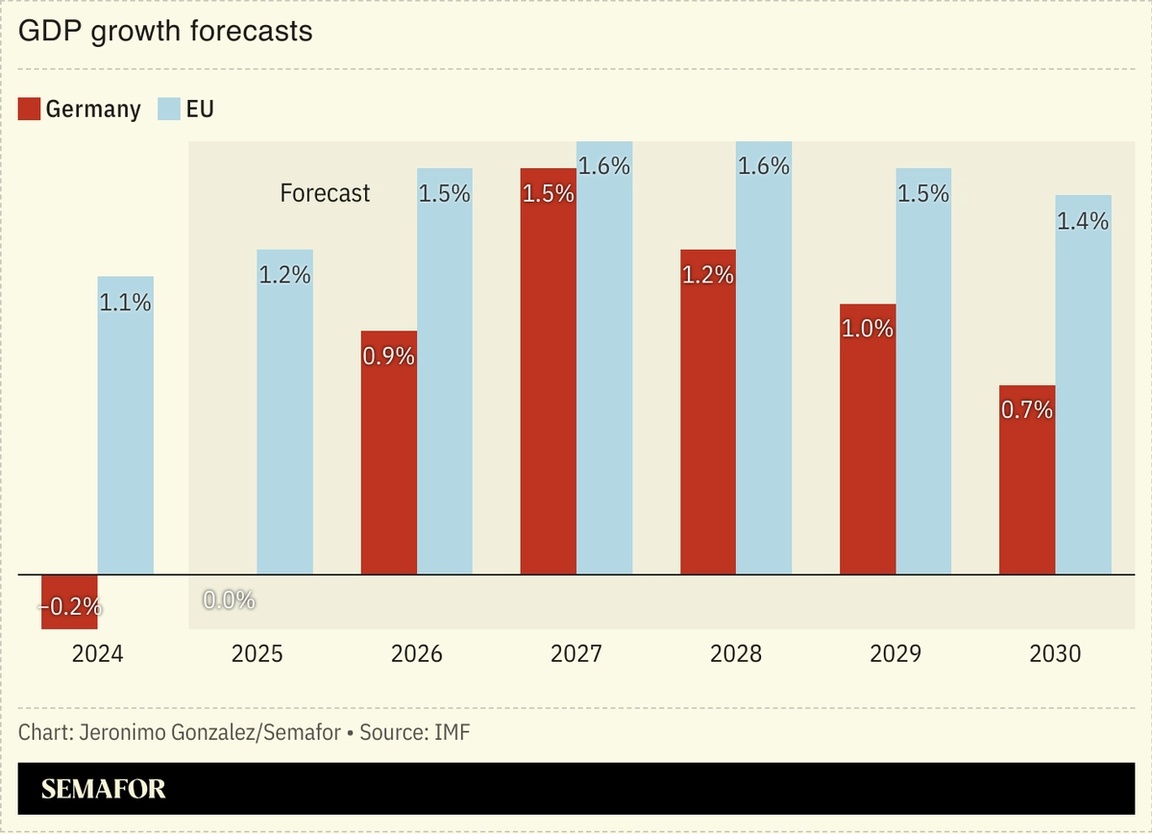 Germany’s manufacturing output dropped unexpectedly in August, falling to its lowest level in 20 years. Chancellor Friedrich Merz has vowed to boost growth in Europe’s largest economy, launching a massive stimulus package, and his government has slightly raised forecasts for growth in 2025. Yet the economy shrank in the second quarter, and the country risks falling into recession, analysts at ING said. Declining demand for German-made cars, China’s growing auto exports, and the persistent impact of US tariffs has hit Germany badly, threatening a wider fallout. “When Germany sneezes, Europe catches a cold,” The Atlantic Council wrote in February: The country has shifted from “engine to anchor.” |
|
Death knell for UK’s Tory party? |
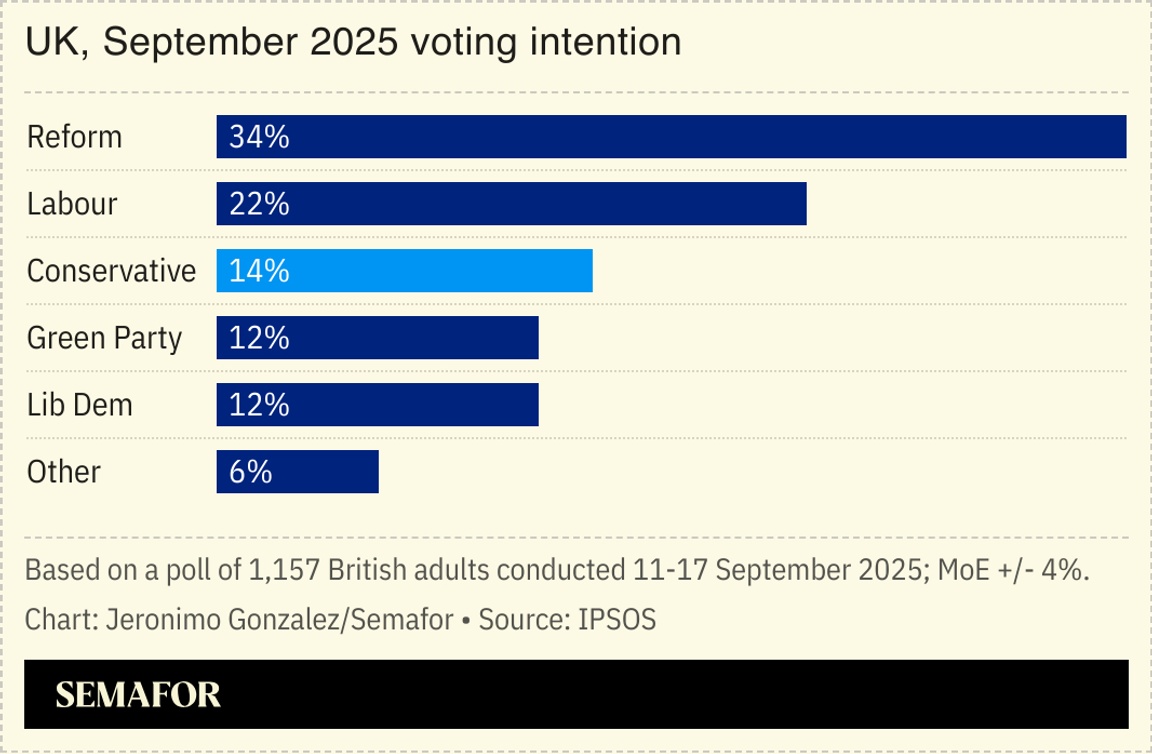 Britain’s Conservative Party, arguably the world’s oldest political party, is in mortal danger — again. In 2024, the Tories suffered their worst-ever defeat, and despite the Labour government’s nightmare first year, the Conservatives have fallen further, slipping to just 14% in the polls, well behind the upstart, anti-immigration Reform UK Party. This week’s Tory party conference was sparsely attended, too. The Conservatives consider themselves Britain’s “natural party of government”: The country’s prime minister has been a Tory for 65 of the last 100 years. The death of Tory England has been foretold many times, and the party has a chameleonic ability to adapt, but this may be the greatest challenge to its dominance that it has faced in its long life. |
|
Colombia accuses US of boat strike |
 Colombian President Gustavo Petro. Luisa Gonzalez/Reuters Colombian President Gustavo Petro. Luisa Gonzalez/ReutersColombian President Gustavo Petro suggested a vessel bombed in the Caribbean by the US was carrying Colombian citizens, allegations that could widen the growing rift between Bogotá and Washington. US President Donald Trump said American forces struck a vessel on Saturday off the coast of Venezuela as part of its crackdown on drug trafficking. US officials called Petro’s allegations “baseless.” Meanwhile, a move in Washington to block strikes on vessels in the region was rejected by the Senate. The apparent unpredictability of the US campaign has left many in the southern Caribbean scared to go out to sea, with some fishermen thinking twice before casting off. |
|
 Tired of financial newsletters that bury the lead, or worse... don’t have one? That’s why more than 1 million investors start their day with The Daily Upside. Written by former Wall Street insiders, it cuts through the noise with actionable market insights that actually matter. Subscribe for free and stay ahead. |
|
Call to fill Africa aid gap |
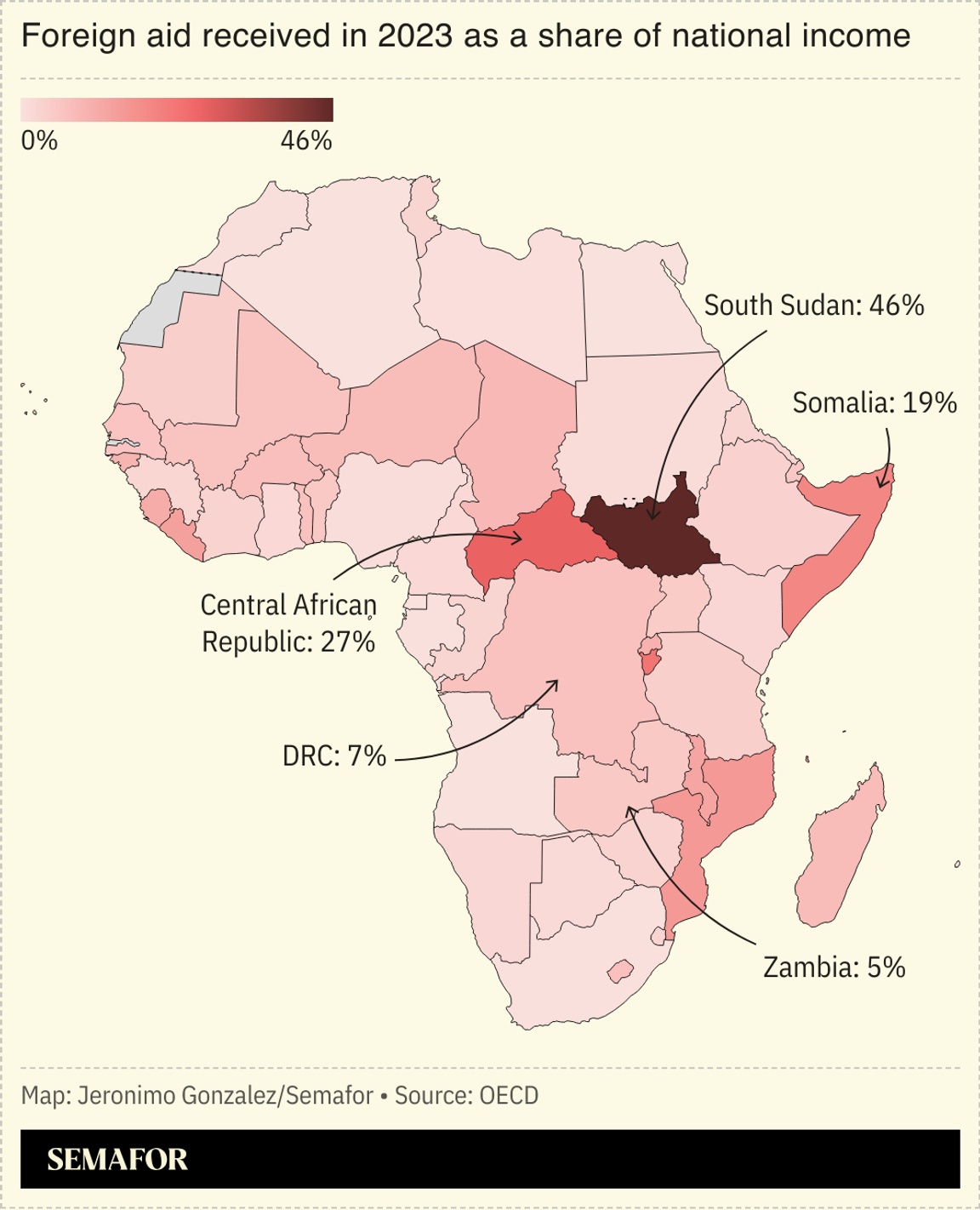 Countries in Africa should urgently improve tax systems to plug the enormous financial gap created by sudden aid cuts to the region, a new report argued. Africa has the lowest tax-to-GDP ratio of any continent, with the report suggesting nations should invest in digital systems to improve compliance and boost government coffers. The tax shortfall is made more urgent by the reduction in aid, which will put pressure on health care spending and even UN peacekeeping missions. Still, the cuts were “long overdue,” Zambia’s President Hakainde Hichilema argued, saying they will force the continent to take ownership of its own affairs. “There is a shock. But longer term, it’s a good thing,” Hichilema told the Financial Times. |
|
|